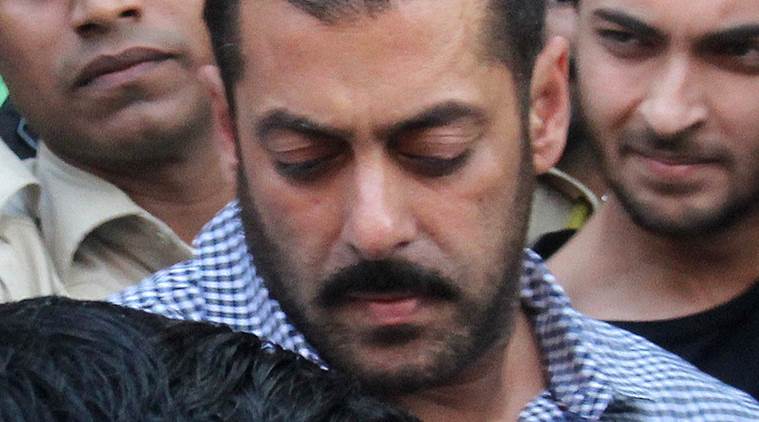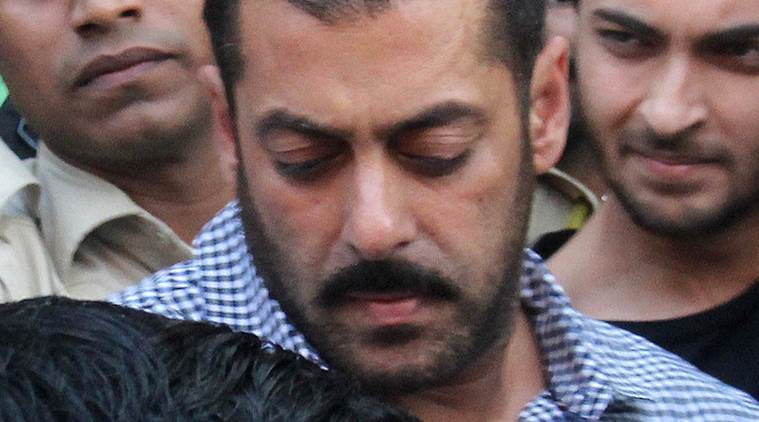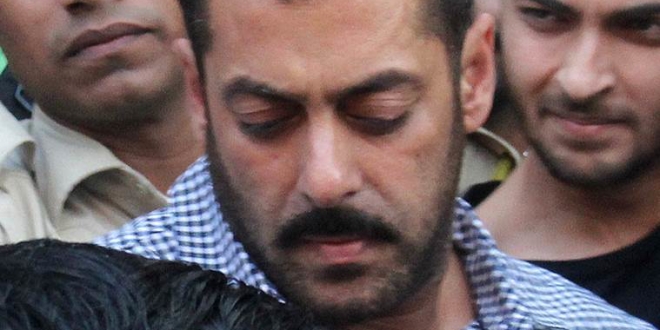
 When the accident occurred in the wee hours of a September 2002 morning, Salman vanished from the spot.
When the accident occurred in the wee hours of a September 2002 morning, Salman vanished from the spot.
This sad story needs to be told. Ravindra Patil, a young boy from Dhule, joined Mumbai Police as a constable in 1997 and, later, was chosen for the elite commando squad, whose primary duty is to tackle terror situations. Instead, he was plucked out of the squad and sent as bodyguard to Salman Khan. Mumbai Police needs to rethink its policy on providing men to protect VIPs. In this case, Salman had received threats from the underworld. Sending a young and inexperienced constable, with just two years of active service, to protect a matinee idol like Salman was most thoughtless.
If there was a real threat, a lone constable would hardly suffice. VIPs should be advised to hire trained security men from the reputed agencies now mushrooming in Mumbai. In advanced countries of the West, people like Salman have hired such trained security personnel from the open market. Governments there don’t provide security to private individuals by the logic that, if they did, rich people would skim away all the policemen enlisted to protect the life and property of the entire population.
Patil was a simple lad from interior Maharashtra, unused to mingling with celebrities like Salman, whose lifestyle was totally alien to Patil’s upbringing and environment. He was suddenly confronted with the good things of life — fast cars, the best Scotch and late nights. He was too young and inexperienced to perform protective duties and he certainly wasn’t trained to do so.
According to his friends in the police, Patil was thrilled to be a part of Salman’s family and friend circle. Sometimes, the actor sent him on errands to buy bottles of Scotch or designer clothes and, very often, a bottle or stylish clothes would be gifted to the constable. Obviously, nobody told Salman that security men were not to be used for domestic errands. When the accident occurred in the wee hours of a September 2002 morning, Salman vanished from the spot. His basic police training propelled Patil to the nearest police station, where an FIR was registered on the basis of his statement that Salman was driving the car and was responsible for the accident. The fact that he had consumed alcohol at the JW Marriott hotel was also mentioned in the FIR.
An FIR is admissible as evidence in criminal law on the principle that what is stated immediately after the crime is committed would be true. The trial court had accepted the constable’s version that had been subjected earlier to cross-examination when his statement was recorded before a magistrate under the provisions of the law. The high court decided to reject it on the plea that the cross-examination was undertaken when the actor was charged with the less serious offence of causing death by a rash and negligent act, and that he was not cross-examined specifically after the charge was upgraded to culpable homicide not amounting to murder. This logic of the Bombay High Court needs to be challenged in the Supreme Court, lest it become embedded in law.
Patil’s friends in the police say he suddenly came into money at a certain stage after the offence was registered. He spent it on one particular woman, who squandered all that the boy had suddenly acquired. We can only guess the source of this sudden wealth. Because the constable remained absent from court hearings on five different occasions, the magistrate issued a non-bailable warrant to secure his presence. The crime branch found him in a hotel in Mahabaleshwar and arrested him. He was sent to Arthur Road Jail, from where he was later released on bail.
For his prolonged absence from duty, the department had suspended him from service. After he went entirely missing sometime in 2006, he was summarily dismissed. In the meantime, his wife divorced him because he had abandoned her. His own parents disowned him for the same reason. He was obviously under great stress because, on the one hand, his departmental superiors wanted him not to change his version of the facts. And, on the other, the person he had begun to adore, and to whom he seemed to be indebted, was high up on his scale of preference. He sought refuge from his quandary in wine and women and contracted life-threatening diseases in the process. In 2007, five years after the accident, he was found in the Sewri TB Hospital in a physical condition that made it difficult for friends to recognise him. He was reduced to a pile of bones and weighed a mere 30 kilograms. He moved and spoke only with difficulty. The doctors thought he was a beggar who had managed to collect a few rupees to hire a cab to come to the hospital. He died on October 4, 2007, when he was still in his 30s.
The main purpose of recounting this story is to plead with the police hierarchy not to send such young, immature boys to guard a celebrity — especially one who leads a life far removed from the ordinary. It’s unfair to expose such young constables to a world so different from the one they have lived in till that moment. It’s even more imprudent to send just one man to guard the life of another who says he’s under threat from the Mumbai underworld.
If the Bombay High Court had castigated the police leadership for this wrong policy, I would have supported its stand. Instead, it chose to whip them for the crime of poor investigation, which is a trifle unfair. If one wishes to pick holes in investigations, it’s very easy to do so.
![]()
Source: New feed






